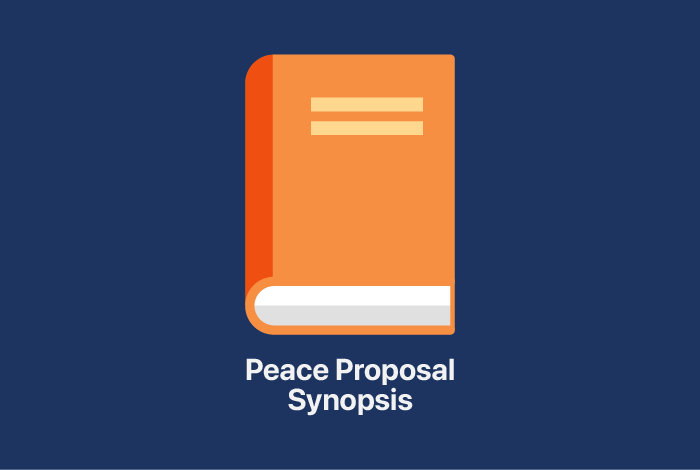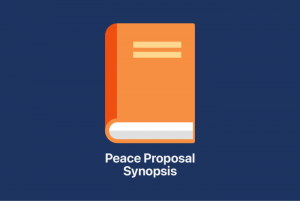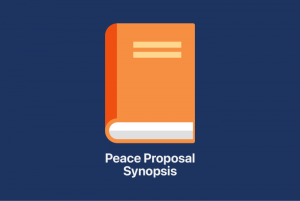Compassion, Wisdom and Courage: Building a Global Society of Peace and Creative Coexistence
Efforts are currently under way to define a set of Sustainable Development Goals (SDGs) with a target date of 2030. As we debate these goals, we must face head-on the underlying ailments of human civilization in order to ensure that efforts to improve the human condition are more than mere stopgap measures–that they enable people struggling in the face of dire threats to recover the hope and strength needed to lead lives of dignity.
For this we need a spiritual framework that will bring into greater clarity those things we cannot afford to ignore, while ensuring that all that we do contributes to the larger objective of a global society of peace and creative coexistence.
If we picture such a society as an edifice, the ideals of human rights and human security are key pillars that hold it up, while the foundation on which these rest is respect for the dignity of life. For this to be a meaningful and robust support for other endeavors, it must be felt and experienced palpably as a way of life.
To this end, I would like to propose the following three commitments as guidelines for action:
- The determination to share the joys and sufferings of others
- Faith in the limitless possibilities of life
- The vow to defend and celebrate diversity
I believe that the social mission of religion in the twenty-first century must be to bring people together in an ethos of reverence for life’s inherent dignity and worth.
One pressing threat to the dignity of far too many people in our world today is poverty. The pervasive stress of economic deprivation is compounded when people feel that their very existence is disregarded, becoming alienated and being deprived of a meaningful role and place within society. This underlies the need for a socially inclusive approach focused on the restoration of a sense of connection with others and of purpose in life.
Regardless of circumstance, all people inherently possess a life-state of ultimate dignity and are in this sense fundamentally equal and endowed with limitless possibilities. When we awaken to our original worth and determine to change present realities, we become a source of hope for others. Such a perspective is, I believe, valuable not only for the challenges of constructing a culture of human rights, but also for realizing a sustainable society.
To forestall the further fissuring of society and enable a culture of peace to take root in the world, dialogue based on the celebration of our diversity is indispensable.
Outlawing nuclear weapons as inhumane
There has been a growing movement to outlaw nuclear weapons based on the premise that they are inhumane. It is my strong hope that an expanding core of NGOs and governments supporting this position will initiate the process of drafting a treaty to outlaw these weapons in light of their inhumane nature.
Japan, as a country that has experienced nuclear attack, should play a leading role in the realization of a Nuclear Weapons Convention (NWC). Further, it should undertake the kind of confidence-building measures that are a necessary predicate to the establishment of a Northeast Asian Nuclear-Weapon-Free Zone and to creating the conditions for the global abolition of nuclear weapons.
The SGI’s efforts to grapple with the nuclear weapons issue are based on the recognition that the very existence of these weapons represents the ultimate negation of the dignity of life. At the same time, nuclear weapons serve as a prism through which to perceive new perspectives on ecological integrity, economic development and human rights. This in turn helps us identify the elements that will shape the contours of a new, sustainable society, one in which all people can live in dignity.
Toward this end, I would like to make three concrete proposals:
- Making disarmament a key theme of the Sustainable Development Goals. Halving world military expenditures relative to 2010 levels and abolishing nuclear weapons and all other weapons judged inhumane under international law should be included as targets for achievement by the year 2030.
- Initiating the negotiation process of a Nuclear Weapons Convention. The international community should engage in active debate to broadly shape international public opinion, with the goal of agreement on an initial draft by 2015.
- Holding an expanded summit for a nuclear-weapon-free world. The G8 Summit in 2015, the seventieth anniversary of the atomic bombings of Hiroshima and Nagasaki, would be an appropriate opportunity for such a summit.
Fostering a culture of human rights
To enhance United Nations efforts to promote a culture of human rights, I propose that the promotion of human rights be a central element of the SDGs for the year 2030, including the following two specific targets.
Every country should set up a Social Protection Floor (SPF) to ensure that those who are suffering from extreme poverty are able to regain a sense of dignity. Some thirty developing countries have in fact already started implementing plans for minimum income and livelihood guarantees. Such guarantees are a necessary condition for sustainability and a culture of human rights.
Every society should promote human rights education and training. Alongside the legal system of guarantees and remedies, efforts to raise awareness of human rights through education and training could serve as a catalyst for the social interaction and support that provides a sense of connection and helps people regain hope and dignity. Regional centers for human rights education and training could be established within the framework of the United Nations University, along the lines of the centers currently promoting education for sustainable development.
Today’s children will inevitably play a crucial role in the work of constructing a culture of human rights. To protect them and improve the conditions under which they live, it is crucial that all countries ratify the Convention on the Rights of the Child and its Optional Protocols, and pass the domestic legislation needed to fulfill the treaty obligations.
Strengthening Sino-Japanese relations
Improving relations between China and Japan–currently said to be at their worst since World War II–is an essential element in building a global society of peace and coexistence.
Political and economic relations between these two countries are constantly impacted by the ebb and flow of the times. This is why, faced with a crisis, it is important to adamantly uphold the two central pledges in the Treaty of Peace and Friendship between Japan and the People’s Republic of China (1978): To refrain from the use or threat of force, and not to seek regional hegemony.
I urge Japan and China to set up a high-level forum for dialogue aimed at preventing any worsening of the situation. Its first order of business should be to institute a moratorium on all actions that could be construed as provocative. This should be followed by an analysis of the steps by which the confrontation evolved in order to facilitate the development of guidelines for more effective responses to future crises.
I suggest that Japan and China institute the practice of holding regular summit meetings, similar to those established through the Élysée Treaty that regularly brought together French and German Heads of State and Government. I further propose that Japan and China together launch an organization for environmental cooperation in East Asia. This would help lay the foundations of a new partnership focused on peace and creative coexistence and joint action for the sake of humanity.
The key to realizing all these goals ultimately lies in the solidarity of ordinary citizens. The year 2030 serves as a major goal in the effort to promote cooperation in the international community, and will also mark the one-hundredth anniversary of the founding of the Soka Gakkai. Working with all those committed to a global society of peace and creative coexistence, we will continue to foster solidarity among the world’s people as we look ahead to that significant milestone.
You are reading {{ meterCount }} of {{ meterMax }} free premium articles





